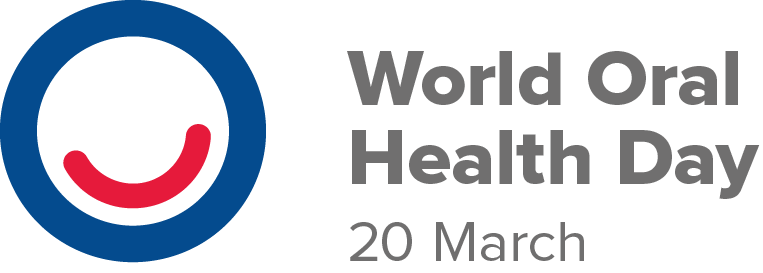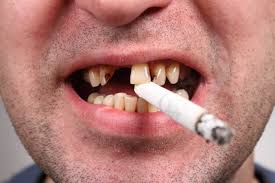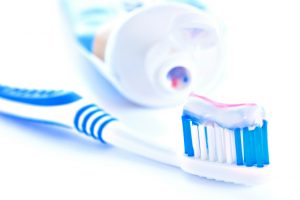All around the world on March 20, we celebrate World Oral Health Day. In 2019, the theme is Act on Mouth Health: raising awareness about oral health on a local and global scale.

Small(est) Scale: Your Children
Good oral care is important for kids and parents have the responsibility of making sure their kids are maintaining their dental health. Start oral care for your baby during the first few days after birth by wiping the gums with a clean moist gauze pad or washcloth at least twice a day.
Brushing
As they grow older, your child should brush their teeth for two minutes twice daily (in a gentle, circular motion) to help reduce their risk of tooth decay and gum disease. If your child is younger than three years old, smear a small amount of flouride toothpaste (about the size of a grain of rice) on their toothbrush. If your child is older than three, the size of the toothpaste should be pea-sized.
Encourage your child to rinse their mouth after brushing their teeth (not swallowing the toothpaste). Change their toothbrushes every three months for the best oral care.

Thumb or Pacifier Sucking
Sucking on a pacifier or thumb for too long affects the development of your child’s mouth and teeth. Don’t use a pacifier once your child is older than two and a half years old. Also, never dip the pacifier in sugar or honey. Discourage thumb sucking at an early age as it is potentially a disastrous habit for your child to get into.
Diet
Limit your child’s intake of sugars to approximately three teaspoons daily. Ensure they do not consume excessive amounts of sugar from snacks, processed food, and soft drinks to help prevent dental caries and other oral diseases.

Mouth Guards
Your child will need to wear a mouth guard whenever they play a contact sport. A mouth guard is a rubber-like cover which fits exactly over the teeth and gums, cushioning and protecting them from fracture, displacement, or loss. Speak to your dentist about getting your child a tailor-fitted mouth guard.
Dental Visits
Take your child to the dentist after their first tooth has pushed through and no later than their first birthday. Schedule regular, six-monthly check ups. The dentist will detect any gum disease or tooth decay early on if you consistently bring your child to the dentist and will be able to help guide you through any prevention strategies you can implement for your child.

Larger Scale: You
Brushing
Good oral care is important for you too. Brush your teeth for two minutes twice daily with fluoride toothpaste in a gentle, circular motion. Rinse with a fluoride mouth wash or chew sugar-free gum after meals and snacks when brushing isn’t possible. This will help prevent tooth decay.
Flossing
Ask your dentist how to clean between your teeth using floss or other interdental cleaners. Regular cleaning between teeth helps to dislodge food and may also reduce gum disease and bad breath by removing plaque build up at the gum line.

Diet, Tobacco, and Alcohol
Limit your intake of sugars to approximately six teaspoons daily. Avoid consuming excessive amounts of sugar from snacks, processed food, soft drinks, and alcohol. Excessive alcohol consumption can lead to injury, often to the mouth and teeth, and can cause dental caries due to the acidity and high sugar content of many alcoholic beverages.
Don’t use tobacco as it puts your mouth at an increased risk of gum disease and oral cancer. Tobacco can also cause staining, bad breath, premature tooth loss, and loss of taste and smell.

Mouth Guards
Wear a professionally-made mouth guard whenever you play a contact sport. Especially with rough sports like rugby, players are more often than not subjecting their bodies to high levels of physical trauma and force. These activities can easily knock out a tooth or cause other serious damage to the mouth and jaw.
Dental Visits
Visit your dentist regularly every six months for check ups and cleans. Just like other major diseases, prevention, early detection, and treatment are key to ensuring the best outcomes and reducing the risk for oral diseases and associated health complications.

Largest Scale: Government
Oral diseases, such as tooth decay, gum disease, and oral cancer, are widespread and largely preventable. Through individual action combined with government-driven, population-based strategies, good oral health and general health can be secured.
Global Oral Disease
More than half the world’s population (3.5 billion people) suffer from untreated oral diseases. What’s worse, untreated oral diseases have increased by 40% since 1990, and with no improvement over the last 28 years, they will continue to rise unless governments take action now.
The indirect costs due to oral diseases worldwide amounts to more than a staggering US$140 billion annually, which corresponds to economic losses within the range of the 10 most frequent global causes of death.

National Oral Health Plans
The most effective way, according to the World Health Organisation (WHO), to reduce your country’s oral disease burden is through a national oral health plan that implements integrated, evidence-based, and cost-effective interventions to improve oral health throughout the life course.
Australia actually does have a National Oral Health Plan in place since 2015 which will stretch till 2024. You can check it out here.
Fluoride
The regular, appropriate use of fluoride such as fluoride toothpaste plays a key role in effective tooth decay prevention strategies. There is a large body of scientific evidence from the last 70 years demonstrating the effectiveness of fluoride use in population-wide interventions. Happily, 70% of Australia’s population has access to fluoridated drinking water since March 2012.

